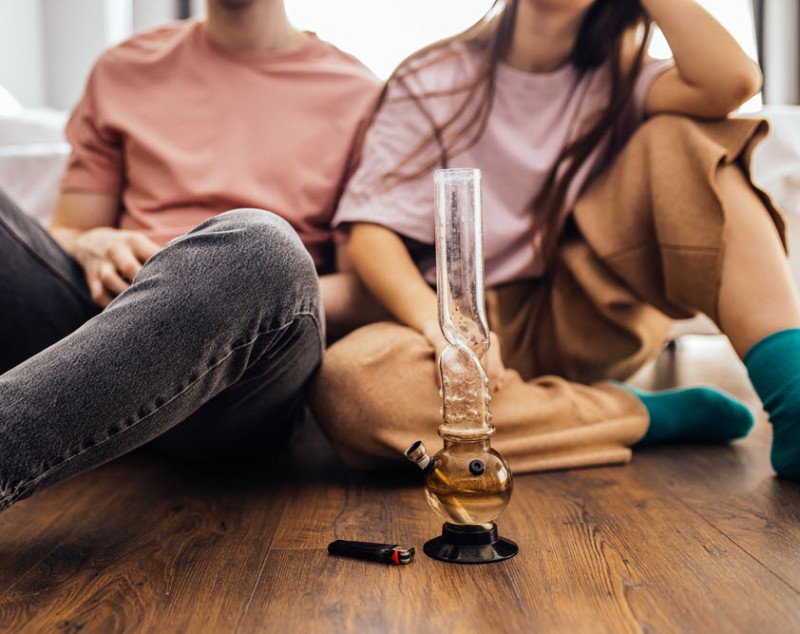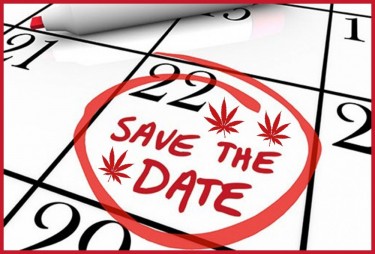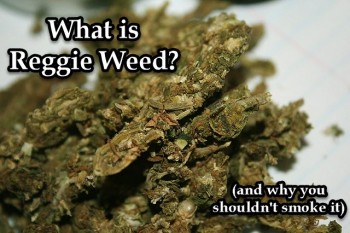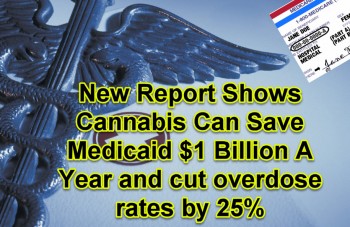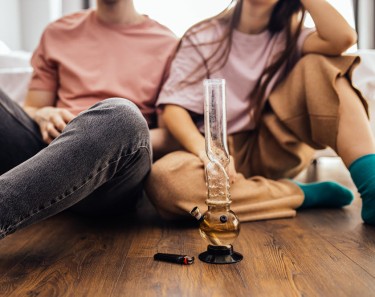
A recent “Study” came under some scrutiny after making some pretty wild claims about how people who consume cannabis interpret their interpersonal interactions. The study entitled, “Relationship perceptions and conflict behavior among cannabis users”.
The study concluded;
Among cannabis users, there are discrepancies between perceived and objective measures of relationship functioning, such that cannabis users viewed their relationships as better functioning compared to independent raters’ reports. These findings highlight the need for a nuanced understanding of the associations between cannabis and relationship functioning, which appear to be distinct from alcohol, as well as an organizing theoretical framework to stimulate future research. - Source
As you can read with your eyes, this conclusion is riddled with questions that the study doesn’t seem to be addressing. I’ll be going through the main points of the study while providing some perspective and a few interesting observations done by Reddit.
Before we continue, let’s take a look at the Methods the Study used to come to their conclusions;
Cannabis users (N = 232; 96 males; 122 females; 14 undisclosed biological sex) and their partners completed self-reports of cannabis frequency and global relationship satisfaction and commitment. At a laboratory visit, couples engaged in a 10 min conflict discussion and a 5 min discussion of areas of agreement, and reported on their post-conflict perceptions. Each partner’s parasympathetic activity was assessed during the conflict task, and trained raters coded conflict and recovery behavior
In other words, a group of stoners got together with their partners and went to a lab. There, they spoke about a conflict they had in the past for 10 mins, and then a 5-minute discussion of areas of agreement. Why not create equal times of discussion is not addressed.
Once they concluded their discussions, they were handed a survey where they rated their feelings after the perceived conflict. Then, “trained raters” - whatever that is reference too – then “coded” conflict – assuming they took the data from the surveys and compiled them together and potentially added their own interpretations as well. Once more, not made clear by the study authors.
According to the study, this is what they Found;
More frequent actor cannabis use was associated with more negative engagement and avoidance behavior during conflict, less parasympathetic withdrawal during conflict, and less effective behavioral recovery immediately after conflict. More frequent cannabis use was also associated with greater satisfaction with conflict resolution following the conflict discussion, but was not associated with perceived overall relationship satisfaction or commitment. Cannabis effects were independent of alcohol use
In other words, they claim that couples who smoke cannabis have more “negative engagement” which isn’t defined in the study (or at least what I had access too). But one could assume this would mean being snarky, aggressive, loud, etc. Additionally, the authors claim that the couples “remained pissed” or “couldn’t shake” the feeling post conflict.
Here’s the Highlights of the study;
Highlights
• Cannabis use is associated with less effective behavior and physiological regulation during romantic conflict.
• Effects of cannabis use on couple functioning were independent of alcohol use.
• Cannabis users’ subjective reports diverge from objective measures of couple functioning.
• Cannabis users’ positive relationship perceptions may undermine their ability to recognize problematic relationship dynamics.
Now that we’ve laid it all out on the table, let’s take a closer look at these points.
How they created the Partner Model?
One Redditor helped explain how they create these kinds of psychological models, which was used to create the results of the study;
This comes from Redditor, “Striking_Menu9765” which is found on THIS THREAD
Normally in psychology we're taught about models that assume independent observations in the outcome variable. But with dyads, interdependence is actually what's going on, because a person and their romantic partner influence each other's outcomes. Partners' data will usually be correlated. Treating the study outcomes as independent when you have participants who not only know each other but definitely influence each other would be a violation of that model's assumption. You can't untangle this, and often times it's actually a pretty interesting piece of the data. Enter, the actor partner interdependence model! This takes into account the interdependence by nesting the individuals within a dyad for analysis. That way when you're looking at the outcome, you're "controlling" for the fact that those data are correlated, and you're observing actual differences that remain.
In the context of this study I can sorta guess. I only read the abstract. But it seems like they had the couples discuss conflict and resolutions and they measured how the couples felt that went. And they had some more objective measures too for comparison. Each dyad had one or more cannabis user and they wanted to know if cannabis use made a difference in the outcomes. But they have to show that difference statistically over and above the influence of the partners' data being in there too. Since both partners were present during the conflict discussion.
This design is stronger than just giving a survey that asks individuals "during your last argument how do you feel it went?" An association between cannabis use and that would be weaksauce without the partner's involvement, and without the observation they would've missed the discrepancy between the participants' perceptions and the more objective measurement. So a good technique to use for sure. That said... more research will be needed to fully tease apart this study's finding. It's pretty interesting but it's early days.
Now that we have a decent breakdown on what statistical models are, we can dive into some more questions that other Redditors had. One such a comment came from Redditor “machina99” who observed;
The study says they had couples report how they felt they handled conflict, which was compared to an observer's judgment on how they handled it. But it doesn't seem to indicate if that difference actually matters to the couple. Like if the couple perceives their relationship as fine, does it matter that a researcher says it isn't?
What I mean is that, say for example someone saw my fiancee and I argue - they'd probably say we're terrible at conflict resolution because she wants to discuss immediately and I avoid it until I can properly think through the issue. Objectively this looks like I'm exhibiting avoidance behavior, which is negative. But my partner knows that's how I operate and we adapt. We would both say we handle conflict well, but an outside observer would likely disagree.
Edit: as many have pointed out, yes, in some situations you do need an outside observer - abuse, dependence, etc, could all be situations in which an outsider is necessary.
This is a fair point. While it’s true, that there is a sense of interdependency with couples, each couple also develops their own conflict resolution protocols which tend to work for them. Of course, I’m sure that some of the findings were on point and some people were avoiding conflict or suffering from “the feels” post engagement.
But is this cannabis? Is this not simply emotional immaturity? Is the emotional immaturity linked to the cannabis or does it potentially have anything to do with the type of community, the age of the couples, etc?
There are many factors when it comes to conflict resolution and while the study did use an objective model – there’s still so many elements that they did not consider when creating these models. This is why psychology isn’t considered a science, due to the sheer objectivity of their models.
What to do with this study?
One Redditor pointed out;
Reddit science in a nutshell: messy psych study gets postet > top comment points out an obvious major methodological flaw > someone quotes the authors that already adressed it or made it transparent as a limitation > repeat steps - /Cutzen
This is true. I’ve read hundreds of these messy psych studies and find that major publications talk about them as if it’s fact. This in turn informs politicians who create whacky laws on faulty premises. This is a major issue we’re dealing with these days, “non-news” posing as news.
The fact of the matter is that some couples who smoke cannabis together will be exceptional at interpersonal conflict resolution, while other would be terrible. While there is some sense of modeling within the psychology to reach “generalized conclusions”, the subjectivity of each individual makes painting with broad strokes a bad idea.
This study used a broad brush to stroke as broadly as possible.
